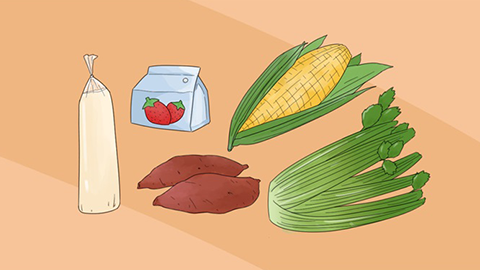Why does it feel like something is pressing inside the stomach right after eating, and what should I do about it?
Generally, the main causes of feeling a sense of pressure or fullness in the stomach immediately after eating include eating too quickly, an unreasonable diet structure, functional dyspepsia, chronic gastritis, and gastric polyps. Patients can choose appropriate treatments such as lifestyle adjustments, medication, or surgery based on their specific conditions. Detailed analysis is as follows:
1. Eating Too Quickly
Eating too fast causes large amounts of air to enter the stomach along with food. Additionally, insufficient chewing increases the digestive burden on the stomach, leading to bloating and a sensation of pressure. To alleviate this, slow down your eating pace, chew food thoroughly—about 15–20 times per bite—and avoid talking while eating.

2. Unreasonable Diet Structure
Excessive consumption of greasy or gas-producing foods, or overeating in one sitting, can overwhelm the stomach’s ability to digest and empty food, resulting in a feeling of fullness and pressure. Adjust your diet by reducing intake of fatty and gas-forming foods, eat smaller meals more frequently, control portion sizes, and avoid overeating.
3. Functional Dyspepsia
Insufficient gastrointestinal motility or reduced secretion of digestive enzymes causes food to remain in the stomach longer, where it ferments and produces gas, leading to post-meal fullness and pressure. Under medical guidance, patients may take domperidone tablets, compound digestive enzyme capsules, or lactase tablets. Taking a light walk after meals can also help promote gastrointestinal motility.
Inflammation irritates the gastric mucosa, weakening digestive function. Food consumed during meals stimulates inflamed areas, increasing the stomach's workload and causing a sensation of pressure. Under medical supervision, medications such as rabeprazole sodium enteric-coated tablets, aluminum magnesium carbonate chewable tablets, or amoxicillin capsules may be used. Spicy and irritating foods should be avoided during treatment.
5. Gastric Polyps
Gastric polyps occupy space within the stomach, interfering with food storage and digestion. After eating, increased intragastric pressure leads to a feeling of fullness and pressure. Larger polyps may cause pain. Small polyps can be monitored regularly, while larger ones or those causing significant symptoms may require endoscopic polypectomy. After surgery, maintain a bland diet and avoid strenuous activity.
In daily life, it's important to maintain regular eating habits and avoid binge eating; chew food slowly to reduce air intake; choose easily digestible foods and maintain balanced nutrition; keep emotions stable and avoid anxiety; and undergo regular gastrointestinal check-ups to detect abnormalities early.




